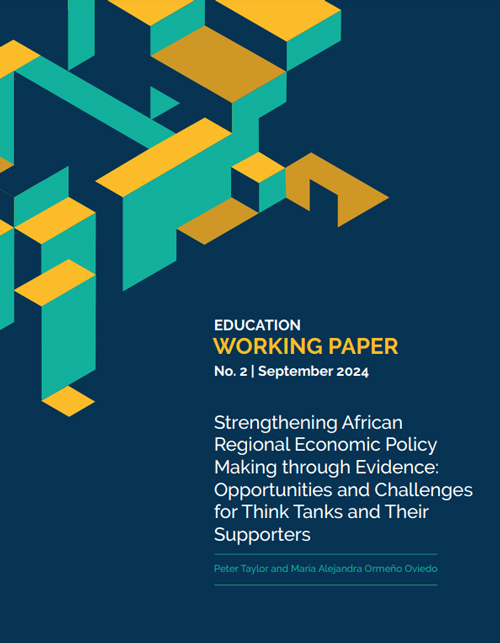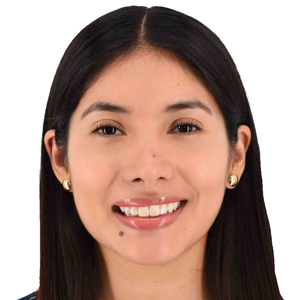Policy making is a messy business. While rationality and certainty are often viewed as desirable traits, the reality is that policy processes in the vast majority of contexts involve multiple actors, and are highly contested, volatile, uncertain, and complex.
Policy-making is a political process, as is the generation and use of evidence, shaped by various power relations. As a result, certain types of knowledge and specific groups of knowers are often valued more highly than others. No magic button ensures knowledge and evidence from the ‘right’ sources will directly inform policy making. As Georgalakis, J. and Siregar, F. (2023) highlight, evidence in policy making and implementation is most likely influenced by a blend of technical infrastructure, human relationships, and various political and cultural factors.
Observations of recent political processes playing out in nations around the world confirm Kingdon‘s (2003) description of the ‘multi-stream’ nature of policy making, within which key actors can consistently change with election cycles, and where there are multiple, often competing, preferences. Problems arise from current events and can gain or lose focus based on media coverage. Policies may be proposed by think tanks, lobby groups, or other actors. However, these policies often do not gain attention until the right situation arises that promotes their relevance, or because multiple streams converge in a ‘policy window’ leading to direct influence.
The African context
In the African context, just as elsewhere, there are many actors involved in the evidence to policy ecosystem: policy makers, politicians, researchers, civil society and social movements, the media, the private sector, and the wider citizenry. At the regional level, the dynamics associated with national policy processes are magnified and ever more complex, implicating also regional bodies and members of the international community, including traditional and emerging donors, whose relationships with African organisations regionally and nationally are many and varied.
 In a paper just published by the World Bank, we argue that African think tanks – or independent policy research institutions – are an emerging group of actors that add enormous value by conducting rigorous and impartial research and facilitating engagement with a wide range of stakeholders around policy issues. They can also help improve the effectiveness and legitimacy of national and regional policy processes and counter ill-informed forces that seek to curtail or derail democratic public policy making, adoption and implementation.
In a paper just published by the World Bank, we argue that African think tanks – or independent policy research institutions – are an emerging group of actors that add enormous value by conducting rigorous and impartial research and facilitating engagement with a wide range of stakeholders around policy issues. They can also help improve the effectiveness and legitimacy of national and regional policy processes and counter ill-informed forces that seek to curtail or derail democratic public policy making, adoption and implementation.
Given the important role that they can play, it is very unfortunate that many African think tanks continue to struggle financially and are often dependent on the variable and unpredictable levels of support offered by international donors. The need for more flexible and long-term support was core to the rationale of the Think Tank Initiative (TTI), a large-scale, ten-year, multi-donor-funded programme of institutional research capacity strengthening for think tanks in Africa, Asia, and Latin America. Implemented by Canada’s International Development Research Centre (IDRC), it offered flexible, long-term funding combined with technical support to help over 40 organisations move along a pathway to sustainability, generating a consistent flow of high-quality evidence, data, and analysis to inform and influence national and regional policy debates.
Research findings
Many lessons were learned through this programme, as noted in a previous working paper. One key finding was that flexible, long-term funding really does make a positive difference in the sustainability, effectiveness and impact of think tanks. It allows for adaptability independence, and ownership and contributes to institutional strengthening. It enables think tanks to align their research agenda with national priorities and political contexts rather than donor interests. Longer-term, flexible funding allows think tanks to influence and shape policy priorities and facilitates their engagement in implementation and adoption efforts. It allows institutions to invest in essential aspects such as strong leadership, qualified scholars, strategic partnerships, and communication capacity over a longer period, enhancing their credibility and influence.
Even though the TTI ran for ten years, African think tanks have benefited from limited core funding, preventing them from fully leveraging its benefits. Project-based funding can weaken their strengths and increase costs, forcing them into multiple short-term projects that complicate staff recruitment and retention. Furthermore, the power imbalances in funding negotiations with donors lead to ongoing dissatisfaction, as highlighted in recent research by Southern Voice and IDS on Equity in Research for Development.
It is encouraging that some donors are returning to the idea of more flexible approaches and new initiatives being taken to support African think tanks. Such approaches align well with the call for action made by the recently launched Africa Charter for Transformative Research Collaborations, and the gathering momentum around achieving more equitable research partnerships.
- The Think Africa Partnership (TAP) is the World Bank’s flagship trust fund in Africa, focused on turning knowledge into economic policy action in sub-Saharan Africa. TAP connects African scholars with local think tanks and government advisors to ensure that policies are based on local ideas and evidence.
- The World Bank’s Africa Think Tank Platform aims to enhance effective policy research and policymaking in Africa through three key components: (i) collaborating with the African Union Commission (AUC) to create a sustainable policymaking platform; (ii) improving the relevance of policy research and its application; and (iii) strengthening the AUC’s resource mobilization for long-term sustainability.
- The GIZ-funded Country Economic Transformation Outlook (CETO) promotes peer learning and shares experiences on economic transformation. Partnering think tanks assess countries’ progress and challenges, providing tailored policy advice to the public and private sectors, while fostering ongoing dialogue to implement national development plans and integrating gender analysis into their research.
African think tanks contribute enormous value by conducting rigorous, impartial research and engaging a diverse range of stakeholders on policy issues. They enhance the effectiveness of national and regional policy processes, helping to counter misinformation and strengthen democratic policy-making. Enlightened funders who value the contributions of research in low- and middle-income countries, have an unparalleled, timely, and important opportunity to support the sustainability, and impact, of think tanks. In so doing they can help amplify, nourish and grow the critical role of evidence in national and regional policymaking provided by institutions that play a key role in the African evidence to policy landscape.
The paper referred to in this blog was a product of preparatory work for the World Bank’s Africa Think Tank Platform Project. We are grateful for their support.

